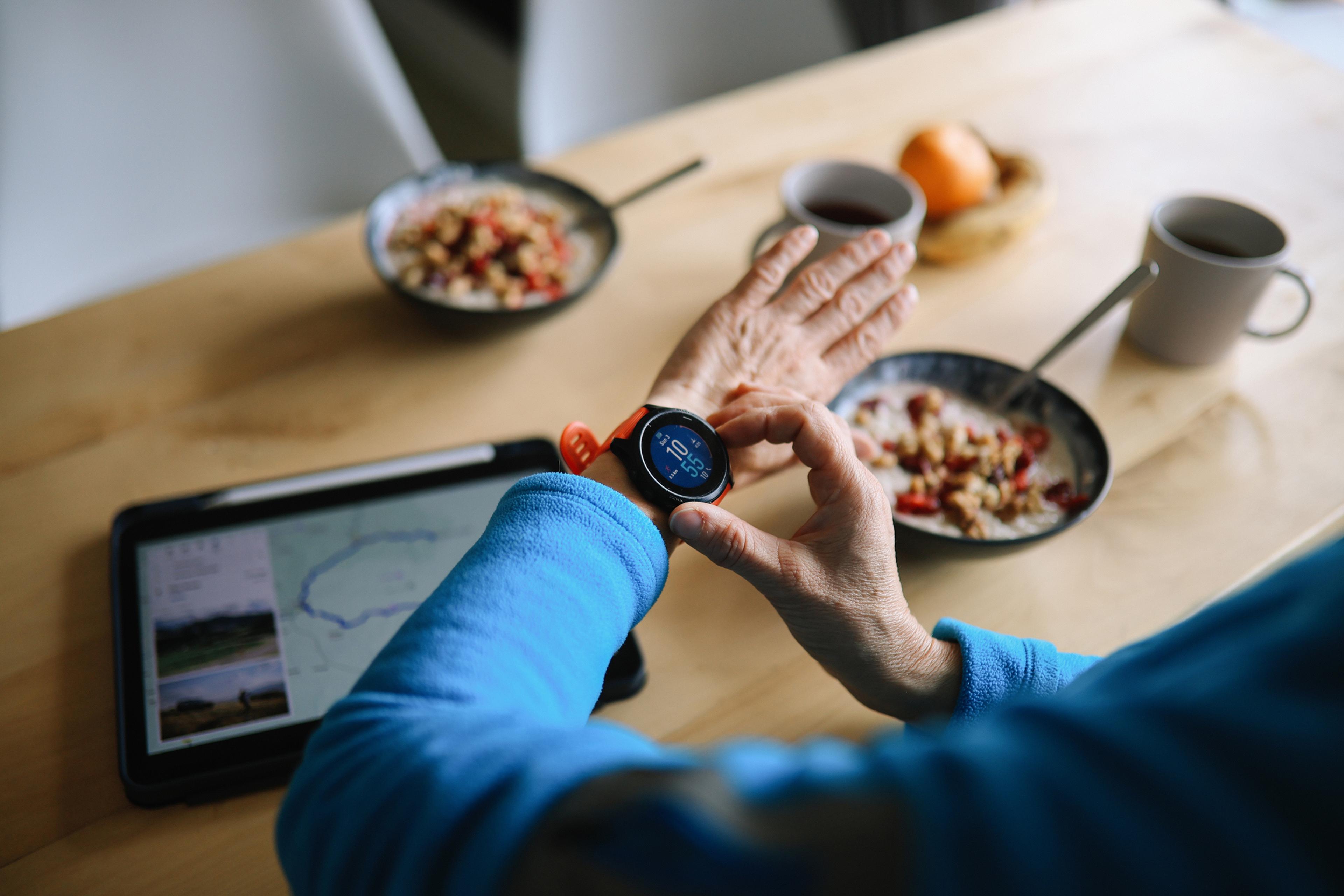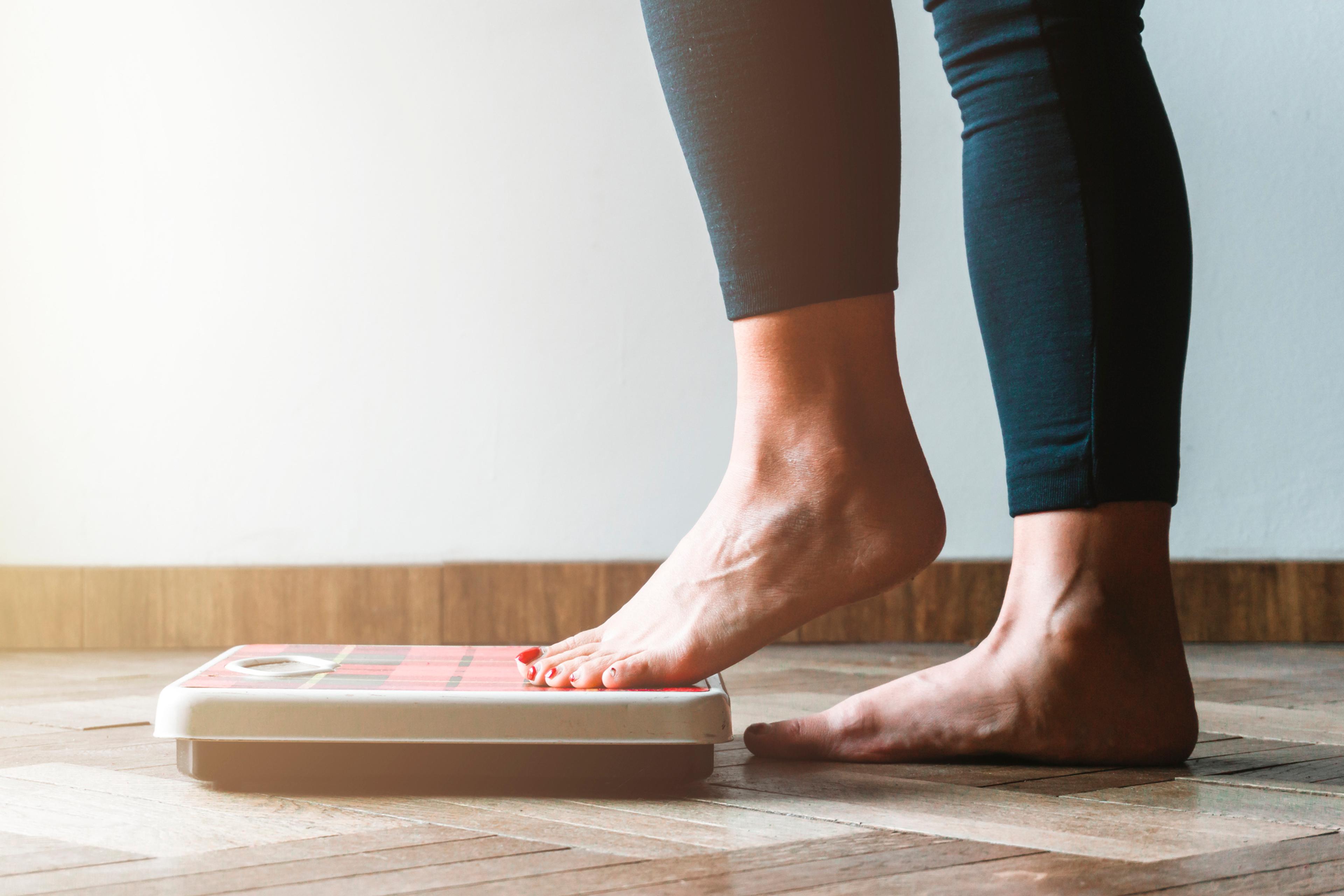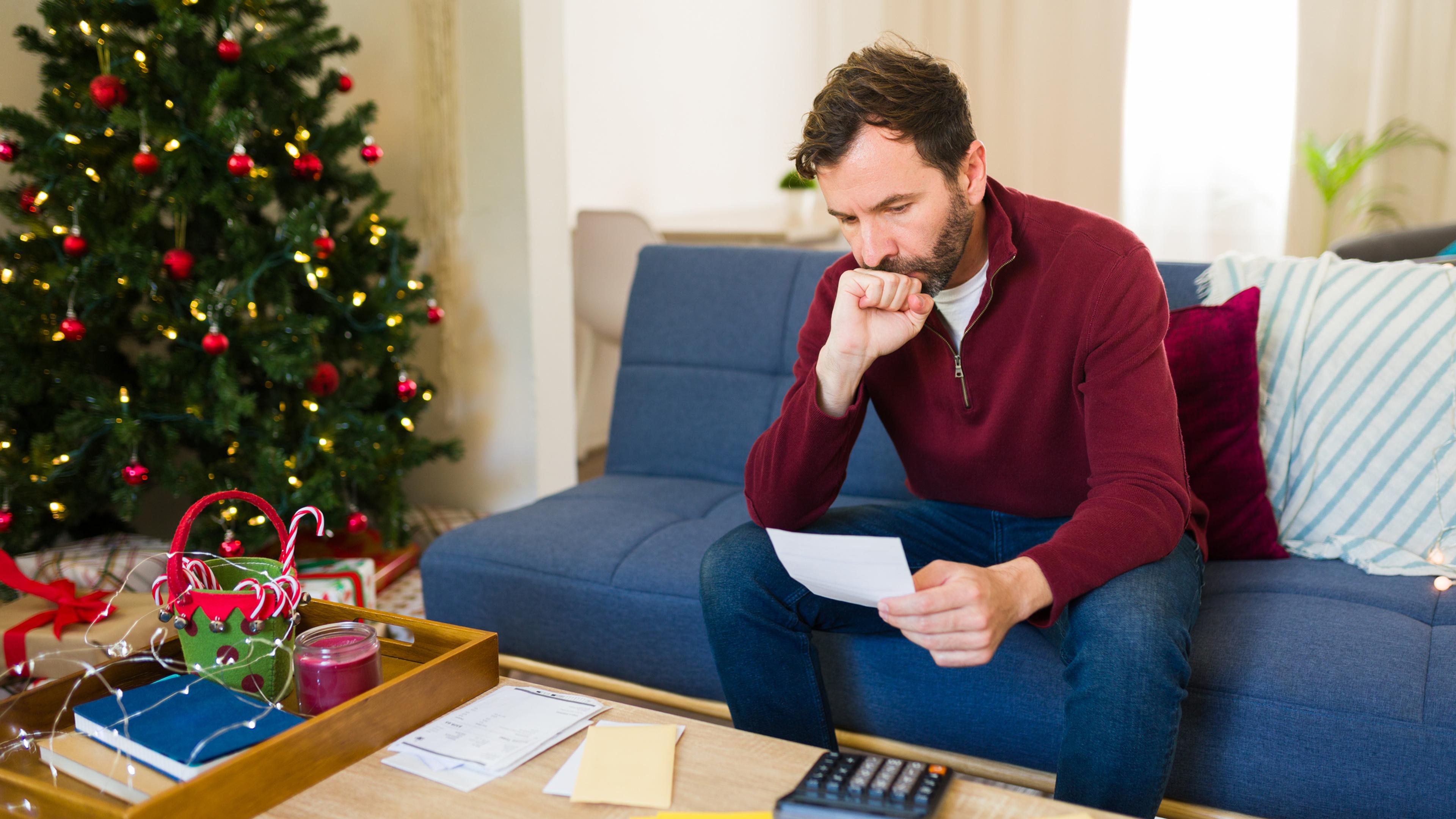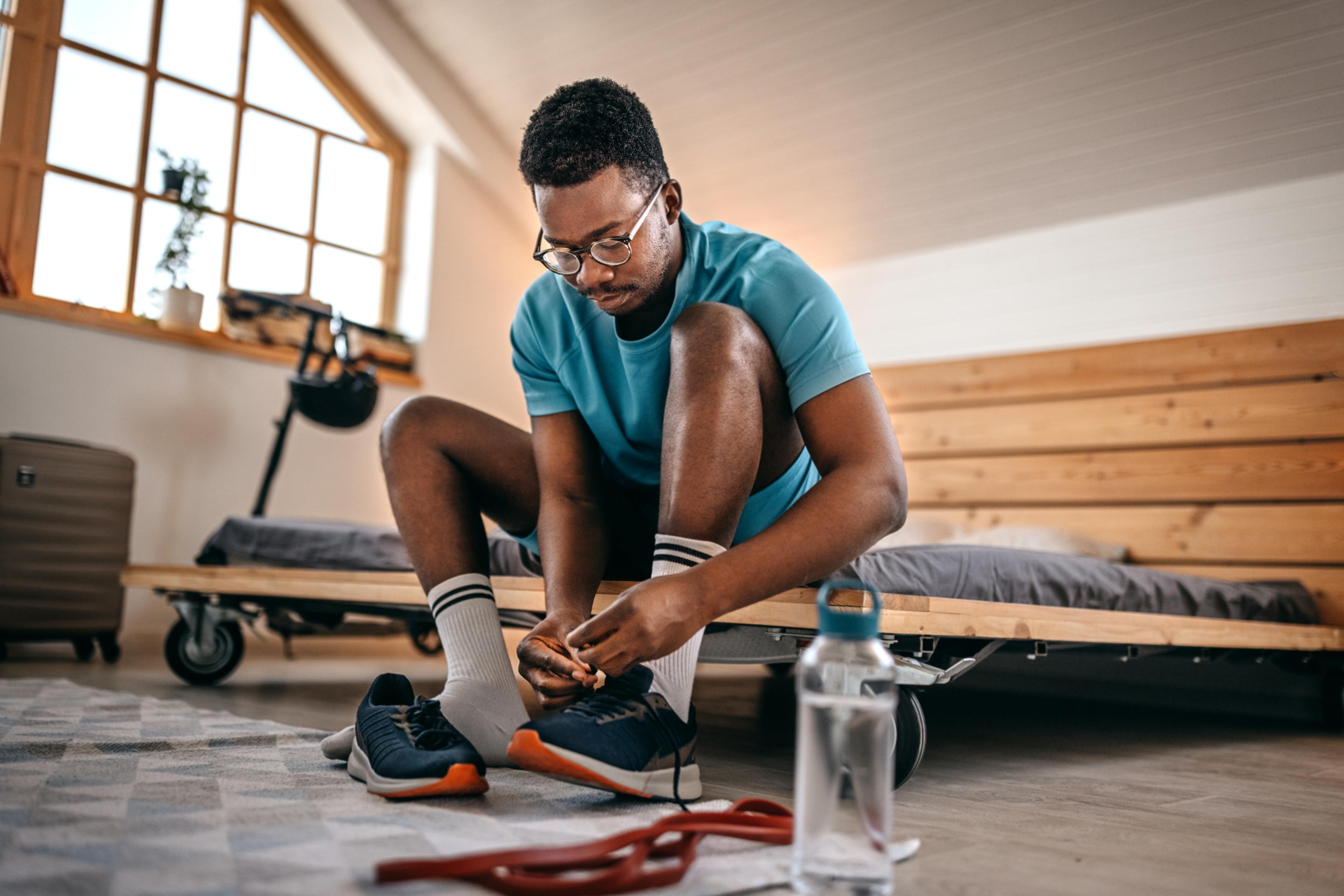How to Get Organized and Feel Better About Your Space
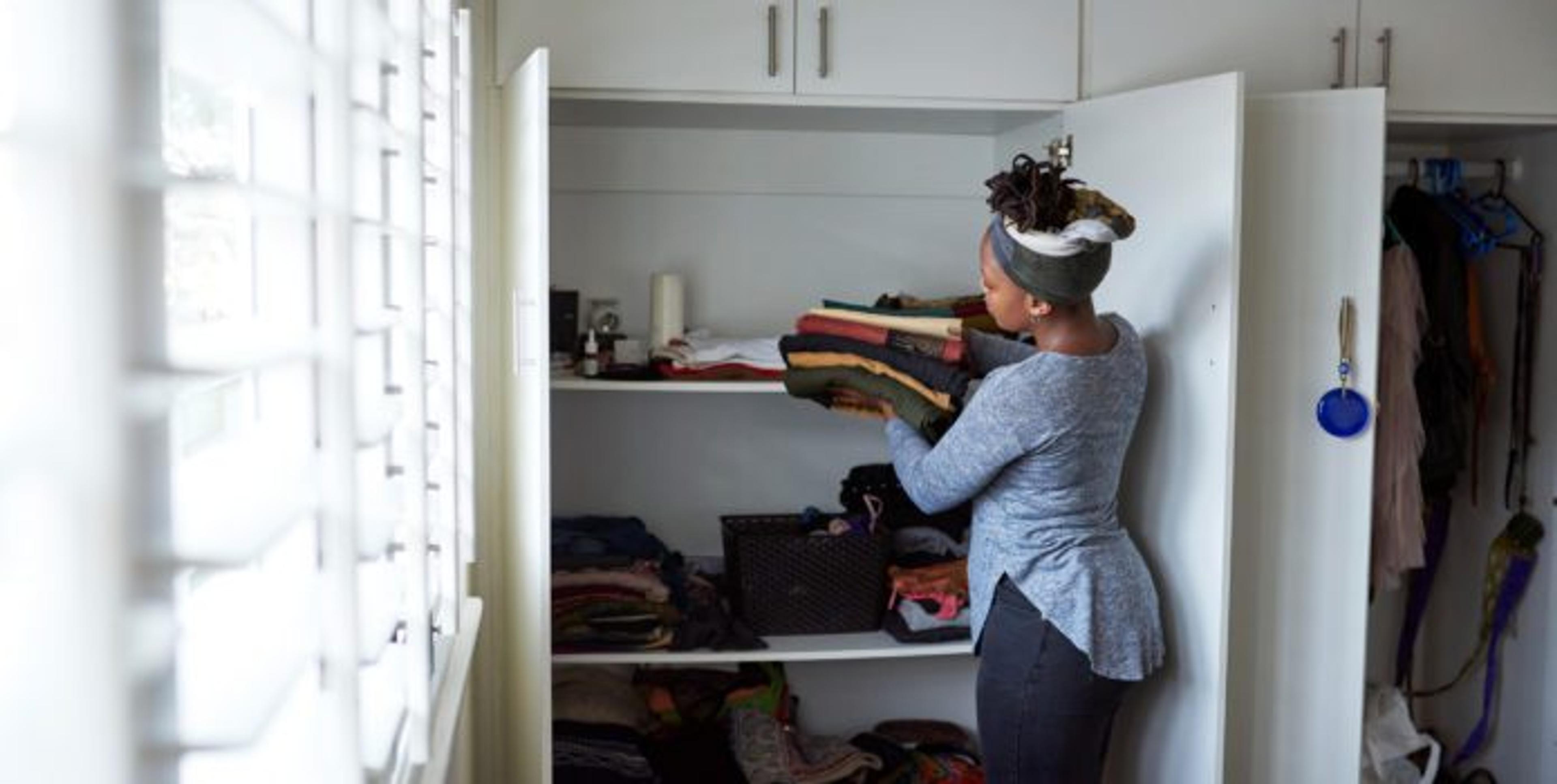
00:00
00:00
About the Show
- How being organized doesn’t simply mean being detailed orientated – it’s making sure everything has a place.
- Finding what your style of organization looks like.
- How decluttering can be an uncomfortable experience, but these negative feelings can lead to positive feelings the more you do it.
- Tackling your home in small chunks so you don’t feel overwhelmed when you begin decluttering and organizing.
- Where to find inspiration to start organizing.
Transcript
Here is the full transcript of this episode. You can listen to the audio version on streaming platforms or watch on YouTube.
This is A Healthier Michigan Podcast, episode 87. Coming up, we discuss how to get organized and stay organized.
Welcome to A Healthier Michigan Podcast, the podcast dedicated to navigating how we can all improve our health and well-being through small, healthy habits we can start implementing right now. I’m your host, Chuck Gaidica. Every other week, we’ll sit down with a certified expert to discuss topics covering nutrition, fitness, and a whole lot more, and today, it is a whole lot more. We’re going to get organized.
On this episode, we’re diving deeper into how to approach organization in a way that works best for us, meaning, how we can actually pull it off. Did you know that organization and cleanliness has been tied to better health overall? With us today as a professional organizer and founder of Clutterbug Organizing Services, Cassandra Aarssen. Good to have you with us.
Hi, thanks so much for having me.
Yeah. It’s good to have you here. You are everywhere. I mean, you’ve got a podcast. You’re on YouTube, HGTV, Hot Mess House. I mean, you’ve been doing this for quite a while, so you’re going to help all of us get better organized today, right?
Yeah. That’s my mission. I’m going to inspire you.
Okay. Well, when I looked at your website, am I going to get this right? You say that you’re a, what did you call yourself? Not a reform, but you went from slob to-
A recovering.
Recovering slob.
Recovering super slob. Yes, absolutely.
Oh, come on.
Yeah, absolutely. I mean, I still have tendencies to leave things out if I don’t have an organized home for it. I think that’s something that you have to work with.
Well, for some of us, my wife and I, I think, I don’t think I’m overstepping bounds, my wife is super organized, which is an awesome thing. And I think that’s now peeled off to kids and even a couple of our younger grandkids. She marvels at our six year old granddaughter who is a super organizer. For me, I’m pretty organized, but yet I have my organized chaos pile. I know there’s a check in there somewhere that I’ve got to go deposit or something. That’s still okay if that’s the way my system works, right?
Exactly. That’s exactly it. I think there’s this expectation that if you’re organized, you are this really detail oriented person, and it doesn’t have to be like that. You can work with the way you naturally manage your stuff and still be organized. Being organized means everything has a home, it’s easy to put back in that home, so that you don’t have to spend hours looking for things or cleaning up a mess.
Now, you know it because you’ve been at this for a long time and we see it in our family’s lives and even friends. You walk in on their house, or you knock on the door and announce, go, “I’m here.” “Oh, don’t come in. The house is a mess.” But when you transition from just a messy kitchen cabinet or countertop to every room in your house is cluttered, you’re on your way to being unorganized, right? I mean, what are the telltale signs for you that somebody is not handling things within their own system?
If you lose something more than one time a week, that’s a telltale that you need to work on your systems. If you’re embarrassed about your home, that right there, your house should never make you feel bad about yourself. And so, if it’s hard to keep your house tidy, it isn’t that you’re bad at cleaning, it’s that you don’t have the right systems in place so it catches those things. Instead of putting it down, you’re putting it away because it’s just as easy to put something away as it is to set on the counter, for your whole family. So, it’s really about saving time, effort, and energy. But at the end of the day, the most important thing is alleviating stress and making you feel good about yourself.
Well, and isn’t that the case. You said something so important here, that putting something away probably doesn’t take us any more time than leaving it out on the counter. And then it gets turned into a pile of stuff and you’ve got to go organize that and put it away again. So, you’re doing something the second or third time, where the first time would have been just as easy, right?
Exactly. But I mean, that’s definitely easier said than done. That’s why it’s important to create a home for something that works with the way you naturally organize. So if you’re the type of person who comes in your door and you’ve got your mail in your hand and you set it on the kitchen counter, that should be where you create a system to catch your mail. And so, looking around at your piles of clutter is actually the perfect way to understand how you naturally manage your stuff and how you can create homes for those things that work with the way you’re naturally putting things down anyways.
So, when you say create a home for it, in your mind, does that also mean we need to create the physical thing? There should be a basket for mail, or would that only be appropriate if that fits your system?
Well, the first step is definitely understanding your style, and this is why I struggled for a really long time. I thought organization looked a certain way. I thought it looked like a filing cabinet, really detailed system, lots of little containers. And my brain doesn’t work like that. I am not going to stop and think. If I have to open a lid to put something away, I’ll set it on top of the container.
Right.
That’s how I naturally manage things. So right off the bat, it’s important that you know if you’re a visual organizer or a hidden organizer. And so, do you have anxiety about if things are out of sight? Will you forget to pay a bill if it’s not in sight, or do you prefer your things out of sight? So hidden, versus visual organizer. And then the other side of that is, are you a detailed person? Do you love details? Or do you need those quick, easy, broad categories without lids so you can toss things away? And knowing the difference, knowing what naturally works for you, means before you even touch anything, before you even buy a container, you can have an idea of what’s going to work for you so you don’t waste your time and you don’t waste your money.
Yeah, those are great points, and I think for some of us, it is really a hybrid. I’ll think of myself, even my wife. I think we’re both, we’re a bit of visual organizers and I know my wife, Susan will say this out loud. This is no kidding, Cass. She will say, “I love paperwork.” She loves files. She loves things organized. And yet, she still has every bin in the garage in a clear, giant Tupperware deal with a label on it so she can see what’s inside it. So she’s super organized, but she goes with both of those systems, which I’m telling you, I’m just blessed that I’ve got somebody that wants to keep up after me. This is great.
Yeah. It sounds like your wife is a bee, so she’s a visual organizer that loves details. I actually have a quiz that you can take to find out your organizing style. And I gave them like all cute little bug names, because I’m a giant dork like that. But that’s the first step, it’s understanding, are you visual? Why would you buy solid containers if you’re a visual person? As soon as you put them in a solid container, you’re going to forget you own it, you’re going to rebuy it, and you’re going to be reluctant to put something away because you have a subconscious fear that you’re going to forget about it. So, clear bins is exactly what you do. So it sounds like your wife is nailing bee organization. That’s great.
Man, am I lucky. I am. I knew it already, but now I’m really getting reinforcements on this. So, this is interesting to me because of course we deal with health and wellness all the time on this podcast, but there is a direct connection, right, to the notion of getting organized, cleaning clutter, and what kind of weight that takes off of us in general on a daily or a yearly basis, huh?
Absolutely. There’s no doubt that your home is the foundation for your life. And when your home is chaotic, you can’t help but feel chaotic on the inside too. When I finally got organized, my stress level drastically reduced. My relationship with my husband and children improved, but even more surprisingly; my self confidence grew, my finances improved, and I had more time in my life for personal growth and business development and all of these things that I wanted to do. It was really my home holding me back, my clutter holding me back, and I didn’t even realize it.
So in your case, did you have a clutterbug expert to go to? How did you find the inspiration? Was the change coming from within, or did you find someone who was a mentor who took you under their arm and said, “Let me show you how to do this”?
I had a mentor, he just didn’t know he was my mentor. I was sitting on my couch, surrounded in babies. I was running a daycare. I had nine children in my home daycare, surrounded by toys and clutter. And I was watching this show called Clean Sweep on TLC with Peter Walsh. And his words, he inspired me to try again. And his approach was definitely, start with less stuff. You don’t need to worry about this mountain and completely getting organized in a weekend. You just need to get things out. And that was a different approach. I started grabbing a garbage bag. I looked for trash, expired food, expired medication. I looked for things that I, honestly, I was never using. And once I started getting the piles down, everything changed. Not only was I feeling less stressed, but then it could really start setting up organizing systems because it was attainable now.
Yeah. And there’s so much freedom in that, right? We downsized to a different home, I guess it’s like eight, nine years ago, and when we did, we brought with us some boxes we had never opened at the last house, and we knew right away, unless there’s something in there that belonged to something that was from the kids when they were little, got to go. I mean, it all just had to go. And the freedom, that idea of the weight coming off of our shoulders that went with getting rid of stuff, was amazing.
Yeah. It’s life-changing. It’s absolutely life changing, but it’s also the hardest part of organization by far. It paralyzes people, the thought of getting rid of their things. It goes against nature, right? We’re hunters and gatherers. We’re supposed to collect. We’re not supposed to give away things that we’ve spent money on, that we’ve earned. It feels wrong. And yet, it’s what’s right. It’s what we have to do. But, you start with really easy things like trash because letting go, decluttering, it’s like a muscle and it has to be worked out.
At first it’s going to be scary. It’s going to cause anxiety, it’s going to make you feel uncomfortable to let things go. But the more you do it, the more you see the positive benefits, the more that negative feeling turns into a positive feeling, and you start feeling energized because you see the transformation it’s having on your home and your stress and how much time you’re saving every day. And eventually, decluttering becomes fun.
You sound like you’re fortunate that you like that feeling. But for so many people, it really is very scary when you first start letting go of things that you don’t use and love. And it’s never about getting rid of anything you like, that’s not what decluttering is. It’s, “Have I used it in the last year?” “Do I love this?” “Would I buy it again if I didn’t own it? Would I go to the store and buy this again?” If the answer to all three of those questions are no, then it’s really logical that, that’s something you can let go.
That’s a great way to look at this and running it through that same funnel of applying that to the stuff on the counter, as well as the clothes in your closet, right?
Exactly. Yeah. And the truth is, the stuff on your counter, the stuff you see, is probably the stuff that you actually use. And the reason it’s out is because all of your closets, your cabinets, your drawers, are so full that you have no place to put things anymore. And so, it isn’t easy to put it away, so you’re putting it down. If you had space in drawers, in cabinets, in closets, you could easily put something away. And so, that’s where we start. We start in hidden areas. I call it like an Easter egg hunt. So you pretend it’s Easter morning, except instead of looking for chocolate, you’re looking for things that you don’t use, you don’t love, and that you wouldn’t buy again. And you don’t have to take everything out. You don’t make a mess. You don’t sort into a million piles. You’re only hunting for things that can go.
That’s a great way to look at that because the other thing that many of us do, I know I’ve wound up in this mode whether it’s screw screwdrivers in the garage or you’ve got two can openers, what in the world do I need two can openers? Well, the one special place that could sit in the drawer, and now there is a special place for just one. When you have two or three of them, you can’t do anything but clutter up another space. And I never needed all that stuff. So, we looked at those things and said, “That one goes, that one goes, that one goes,” and again, it just felt good to do it.
Exactly. Yeah, it does feel good to do it. And then once you’ve got that out of the way, now comes the fun part, which is organizing, right? But I think that’s the biggest misconception. People always say to me, “If I only got organized, then I’d have space for all of my stuff.” And that’s a myth. That’s the biggest lie, because organizing doesn’t create more space, decluttering creates more space. Organizing makes things easier to find and easier to put away, but you can’t organize until you’ve edited. Until you’ve cleared out some of the stuff that isn’t important that you’re not using and you’re not loving.
I just want you to imagine a drawer. You can stuff that drawer full and fit so much more in than if you had drawer dividers and everything having a space. So, that definitely is a misconception that people have about organization, that it’s going to create them more space. It’s really decluttering that does that.
Obviously there are experts like yourself. We can find you in so many different ways and so many different media, but there are also stores now that really can help us out. I remember just a couple of years ago, my wife Susan and I were driving around, she said, “Pull into this strip mall. You’ve got to see this store.” So I pull in, I don’t even know where we’re going. And it’s one of those stores as dedicated to nothing but small size containers, all the way to large, and the whole place is filled with containers. And she walked in, Cass, I’m not kidding, there was almost one of these moments for her. “Look at all these things I can use to organize.” And it was amazing to me that that is a retail concept that has legs beyond just stuff you would find in various different stores, that there are places you can go where you can get ideas to help you on the back end of this. Declutter first, and then go to organize.
Yeah, that store is actually called The Container Store.
That’s it.
And it’s the holy grail of organization.
Yeah.
That’s it. It’s my favorite store.
Is it really? I bet.
100%, it’s my favorite store. But you can walk in there and get inspiration. That’s a great thing to do when you’re trying to identify your organizing style, you can walk into a place, or you can look at Pinterest, look at things on social media and say, “Is this a visual system or is it hidden?” And, “Is it detailed, or is it broad categories?” What are you naturally more attracted to before you set up a system, really identifying your style is so important, because if you’re someone like me who won’t take time to take off the lid if you’re going to put something away that you use every day, don’t waste your money on containers with lids.
I don’t use a filing cabinet. I know, this is crazy. When I pay a bill, all of my bills go into “Paid Bills 2021”, and I sort that at tax time, shred what I don’t need, and then file long-term then. So I’m only filing paper one day a year, but that makes my husband cringe, because he’s a cricket, which is a hidden detailed person. He’s like, “Cass, just right away, put it in the right file folder.” So, it is important to understand how you organize, because it’s going to save you time and it’s going to save you money.
Yeah. And I’m still, in my mind, I’m ruminating on this idea of just getting rid of stuff. Now, you’re going to think the timing of this was really, it’s interesting, but just this very day, as I got out the sheet with some notes to prepare to speak to you, my wife walked up to me, didn’t know what I was doing in the kitchen, and she’s carrying an old Trivial Pursuit box. They’re square and chunky and they take up some space. She said, “So we got this Trivial Pursuit Genus Edition,” which I looked up, it came out in ’81. So I don’t know when we got it, but we may have purchased it in the ’80s. She said, “I want to get rid of it.”
Now my initial reaction is, “Well, wait, maybe somebody can use it.” And then it dawns on me, whatever trivia they’re pointing to, probably our kids or their kids have no idea. They couldn’t even play the game because other editions have come out since then. I said, “Well, let’s get rid of it. Let’s just get rid of it. It’s taking up space.” But we both had this draw like, “Well, this meant something to us when the kids were little,” but answering some of your questions, I wouldn’t buy it again. I don’t need it now. Just because we got it and it wasn’t emotional tug and fun back in the ’80s doesn’t make it right today. So, got to go. But it was just as I was looking at notes with your name on them. And I said, “This is so interesting you’ve walked up to me. I want to get rid of stuff.”
Yeah. And definitely, for a lot of people, it’s this perfectionism that comes in. They know that they don’t want to keep it, but just like you said, “Maybe I could give it to someone. Maybe I could find the perfect person to take this thing.” For a lot of people, they hold on to things out of that perfectionism, even about the perfect way to donate it, the perfect way to recycle, the perfect person to give this item to. And it ends up with a house filled things you don’t use and you don’t love because you’re afraid of making a mistake.
And so, I love just saying to people, “Donate it to a donation center, a charity of your choice, and imagine somebody finding that thing and being so grateful.” Shopping that store and saying like, “Look.” It’s such a great way to give a gift to a stranger, is to donate your items. And it’s just changing that mindset that can help people let go of that perfectionism when it comes to decluttering.
Yeah, that’s great advice. And so, we’ve talked about this idea of decluttering, and now if we move toward organizing, you talked about the container store, that gives you motivation and ideas and inspiration, but what are some of the ways that we can look to create our spaces for organizing? What would be the ways you would suggest we walk around the house, whether it’s a closet, whether it’s a pantry, how do we come up with inspiration and ideas of how to start to organize our space?
Well, it’s really important that you organize for your space and not your stuff. And so, if you’re looking at a closet, say it’s a linen closet. You take a look at how many shelves you have in that closet and that dictates how many categories that you can have. And so, organization is creating a home for everything. And so perhaps the bottom shelf is the home for toilet paper, and the shelf above that is the home for extra bathroom products, and above that is for towels. And so, let your space dictate the categories of stuff.
And then you can go a step further and get containers. So you’ll have a basket for your extra hair products, one for dental. Maybe you’ll have a bin for medication and one for first aid. But again, before you go buy containers, you want to know, do clear work for you? Do you prefer solid? Do you want ones with lids that you can stack, or do you need bigger bins with no lids? And you need to know how many fit inside that closet. And so, I always organize based on my space, not my stuff. So I choose, this as my space for bathroom products, I can only keep what fits back into this space. So your container is your bad guy. Your container dictates how much you can keep you shop your stuff first. “I like this product and this product and this product,” and whatever is left that doesn’t fit, you probably need to let that go.
Now we’re living in a world of the superstore, whether it’s Costco or Sam’s Club or something, where you go buy whipped cream and it’s six cans that are taped together, or 50 rolls of toilet paper. So, if that’s your style of shopping, and one of our jobs is to save money for the family, what is your suggestion then? What do we do with all that other product? Just find a different space in the basement and just use a certain amount of that linen closet to place those rolls of toilet paper? What do you suggest we do in this world of buying gargantuan numbers of things?
This is a big issue for me and the organizing world for sure.
Is it, yeah?
It is. It 100% is. So, we do try to dedicate a space, whether that’s in the basement or the garage as a Costco corner, or your bulk shopping section. But what I always see happen is that people forget to shop their stuff first and they just go back to the store and are buying excess. And it’s this bulk shopping that’s contributing to clutter, hands down. People think that it’s saving them money to buy 10 bottles of shampoo at once, but the truth is they’re forgetting about them and they’re rebuying over and over. Things are expiring. Things are just completely lost in the back of a garage. And so, I would just challenge you to be really honest with yourself. If you love bulk shopping, if it’s something you’re not going to give up, definitely dedicate a space in your home to shop the bulk stuff. But if you find that you think it’s saving you money, but the truth is you know you’re forgetting about 50% of what you’re buying, bulk shopping is costing you money. And maybe that’s something you need to rethink in the future.
Yeah, no, that’s really good advice because I think it could apply to stuff that goes in the fridge along with all the stuff that doesn’t perish here, right? So, if we keep moving down the path, if you are having stress in your life because of the clutter, when do you know that you should be either seeking help online by looking at your videos, what are steps for people so they can actually move and progress from, “I’m inactive, I’m not doing a thing about it,” to, “I’m actually taking the first steps to do this”? And should we assign a goal or a timeline to actually getting something done?
I think the best way to start getting your home organized is taking the 15 minute a day challenge. You’re going to dedicate 15 minutes a day to one area of your house. Maybe that’s the junk drawer one day, you’re going to organize a kitchen drawer where you keep your can opener and potato masher the next day. Doing it in small chunks like this is the secret for success. It’s choosing one small area of your home, setting a timer, whether you’re decluttering or you’re organizing that area and picking away at your house, it didn’t get messy and it didn’t get filled up overnight, and it isn’t going to get organized overnight either.
And so taking it in this small chunk approach, it’s attainable. But even more than that, it creates a habit without you even realizing it. Before you know it, organization is going to be something that you’re doing without even realizing you’re doing it as a subconscious daily habit. So, there’s lots of resources online, 15 minutes a day challenge. I have a 30 day decluttering challenge that you can find on YouTube and my website where I walk you through every day for 15 minutes, we declutter a different area of our home. But I think the best thing that you can do is just take some pressure off yourself, stop looking at the mountain of stuff that you need to deal with. And instead, just look down at your feet and take one small step a day.
Yeah. That’s brilliant advice too, having something that is in small chunks. And there’s another question I have for you because I’ve seen this happen in my family. With the stuff that you want to get rid of, when there’s an emotional tug on your heart, parents have passed or you find old pictures from the family, how do you get past the notion that you are trying your best inside, Cass, to honor their legacy, and yet you know that this stuff probably has to go? You feel like you’ve been entrusted with something. It’s not really that it’s just taking up space in the drawer, you almost feel like, “This was given to me for a reason.” So, is it a matter of, well, if you didn’t put it in a picture frame and use it already, it’s got to go? What is your advice about those kinds of things?
There’s definitely a difference between guilty clutter and sentimental clutter. Sentimental clutter is something that you’re like, “This is special to me,” and guilty clutter is, “This was special to someone else and now I feel obligated to keep it.” And so, definitely know the difference between those two things. And if it’s really sentimental clutter, and you still don’t really have the space, you can take a photo, you can write in a journal about it and attach that photo. I recommend everyone has a memory bin for each family member in the home. One Rubbermaid tote bin, where you can put those really special things. You can put things that are sentimental to you, but when the bin is full, it’s full, and you need to make tough decisions.
But if it’s guilty clutter, your grandmother’s china, your parents have passed and you have things that were special to them, but aren’t special to you, this is about putting boundaries on yourself and your space. So take a picture and let the item go to someone who’s really going to love and appreciate it because that’s how you honor the memory of your loved ones.
Yeah, that’s great. And in your case, you had somebody that you looked at as a mentor from afar, right, through a TV program. But for many, if you have a friend or relative or neighbor who’s good at organizing, do you suggest you get to know them a little better because that could rub off from one friend or neighbor to another, couldn’t it?
Absolutely. I mean, as somebody who loves to organize, I love it when friends and family ask me for help. So, don’t be afraid to ask someone to help you declutter and help you organize a space. Your friends and family will be so grateful to give you help, because it’s something they enjoy. And it’s going to motivate you and push you out of your comfort zone so you’ll get better results than you would just on your own.
There’s so much you’re saying here that is just, it’s so akin to other things we do in our life. As you’re saying them, it’s running through my mind. Finding a mentor, that’s good in many different walks of life, whether it’s your business life or your home life. Exercising your muscles, we go out of our way to try to figure out how to do that. And yet you can do it as well by this 15 minute a day practice, right? Just getting a good habit and working our muscles. So many good ideas of what we can do to take these little steps to help us all improve.
So, resources that we can turn to. You’ve got them. You’ve named them as you’re going through them, but where else can we look? What else should we be looking for, for resources that can help anyone try to improve their life when it comes to organizing?
I think the best thing that you can do is hear the message over and over again. And so, I definitely recommend your local library, checking out, my favorite book for motivation is called “Atomic Habits” by James Clear. And I listen to this on audiobook that I borrow from the library over and over again. I listen to other podcasts about organization. I watch YouTube channels about organization. When you’re not feeling motivated yourself, borrow motivation from somebody who’s motivated. Borrow it, listen to them talk, it’ll seep into you, that motivation, and you’ll feel the urge to get up and start moving. I think that’s the biggest thing we need to overcome, is, how do we feel ready to get up and start taking action? And for me, I like to borrow it from other people.
No, that’s great. And that’s another thing we do to be really honest, right? I mean, we look for motivational speakers. There’s the Tony Robbins approach, and somebody that can get you fired up and you’re doing that for all of us today, frankly. So, thanks.
Oh, thank you. I love inspiring people because the truth is, this’ll changed your life. If you’re living in clutter right now, you’re not alone. I’ve been there. So many of us have been there and you just need to take the first step. Grab a trash bag, look in your fridge, look in your bathroom for expired medication, look for expired food and just take the first step today. Set a timer for five minutes, because five minutes can make a difference.
That’s great. Well, let’s go back through as we wrap up. I know you’d like to leave us with some takeaways, but you’ve said some great things that come down to three steps for this, or very quick ways to look at things that can help us all out. Give us some takeaways as we move through this very day to day of ways we can start organizing. What would you tell us?
Step one is definitely to let something go, to start working out that decluttering muscle, even if it is trash. And the second step is knowing your style. So, knowing the type of containers and organizing systems that are actually going to work for you so you’re not wasting your time and money. I have a free quiz on my website, Clutterbug.com, so you can identify your organizing style. And the third step is looking at where you’re naturally piling things.
Are you naturally piling your mail on the kitchen counter? When you come in the front door, where do you drop your coat and your keys and your shoes? We always start organizing with the things we touch the most. So the things we touch every single day, how can we create a home that’s close by to where you’re naturally putting it down? Whether it’s a hook, whether it’s a basket, whether it’s a floating shelf.
And the last tip is borrowing motivation from other people. So, don’t be afraid to go to your library and get “Atomic Habits”, which is again, I definitely recommend that book, or other organizing books, or watching someone organized on YouTube. It’s amazing, if you watch somebody clean their house on YouTube, you will want to get out and start cleaning your house, too.
That’s great. That’s great. Well, I get motivated by all kinds of things on HGTV and YouTube, and it’s even stuff that I don’t really have a particular need to, like a tiny house or something. So, if you really have the interest in organizing to have someone who can step you through this, you, in particular, would be so helpful. I can’t thank you enough for being with us today to help us get through this idea.
Thank you so much for having me.
Yeah. We’ve been listening to and chatting with Cassandra Aarssen. She is the founder of Clutterbug Organizing Services. And you can find her, we’ll put it in the show notes, but she’s got a podcast, she’s on YouTube, and Home and Garden TV. The show is called Hot Mess House and you can find her there as well, and we appreciate her help today. I know I do. I’m going to start doing some things today.
We want to thank you for listening to A Healthier Michigan Podcast. It’s brought to you by Blue Cross Blue Shield of Michigan. If you like the show, you want to know more, check us out AHealthierMichigan.org/podcast. You can leave us a review, those are important, ratings are important, on Apple Podcast or Stitcher, and you can get old and new episodes on your smartphone or your tablet. So be sure to subscribe to us on Apple Podcast or Spotify, or your favorite podcast app. Are you organized? You’re ready for your day? I hope so. I’m Chuck Gaidica. Be well.

